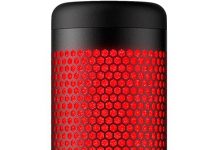Thinking about starting your musical journey? Wondering if you should dive straight into an 88 key keyboard? Well, look no further! In this article, we will discuss the advantages and considerations of getting an 88 key keyboard as a beginner pianist. Whether you’re a complete novice or have some musical experience under your belt, we’re here to help you make the right decision. So, let’s explore the world of keyboards and find out if an 88 key is the perfect fit for you!
This image is property of i.ytimg.com.
Review contents
Factors to Consider
When deciding whether or not a beginner should get an 88 key keyboard, there are several important factors to take into consideration. By evaluating these factors, you can ensure that you make the best decision for your musical journey.
Musical Goals and Aspirations
One of the first factors to consider is your musical goals and aspirations. Are you looking to become a professional pianist, or do you simply want to learn to play for your own enjoyment? If your ultimate goal is to become a professional, then investing in an 88 key keyboard may be the right choice. This type of keyboard will offer the full piano experience and allow you to tackle more complex pieces of music.
Budget
Budget is another crucial factor to consider when deciding on an 88 key keyboard. While these keyboards can offer a wide range of features and capabilities, they also tend to be more expensive than their smaller counterparts. It’s important to carefully evaluate your finances and determine how much you are willing and able to invest in a keyboard. If you have a limited budget, there are alternative options available that can still provide a satisfying learning experience.
Available Space
The amount of available space you have in your home or practice area is another consideration. 88 key keyboards are generally larger in size than keyboards with fewer keys. Before purchasing an 88 key keyboard, it’s important to assess the space you have and ensure that the keyboard will fit comfortably. Additionally, consider whether or not you have room for an adjustable stand and other accessories that may be necessary for comfortable playing.
Transportation
Another factor to consider is transportation. If you plan on taking your keyboard to lessons, gigs, or other locations, it’s important to evaluate the portability of an 88 key keyboard. These keyboards tend to be heavier and bulkier than smaller keyboards, making transportation more challenging. If you anticipate needing to transport your keyboard frequently, you may want to consider a lighter and more portable option.
Ease of Learning
The ease of learning is an essential factor to consider, especially for beginners. Learning to play the piano can be a challenging process, and the size and key range of the keyboard can impact the learning progressions. For beginners, starting with a smaller keyboard may be less overwhelming and allow for a smoother learning experience. However, if you are determined to learn the full range of the piano and are willing to put in the extra effort, an 88 key keyboard can provide a more comprehensive learning experience.
Pros of Choosing an 88 Key Keyboard
While there are several factors to consider when deciding on an 88 key keyboard, there are also many advantages to choosing this option. For those who are serious about their musical goals and aspirations, an 88 key keyboard can provide a full piano experience and allow for the playing of complex music. Here are some of the pros to consider:
Full Piano Experience
One of the main advantages of choosing an 88 key keyboard is that it provides a full piano experience. With 88 keys, the keyboard covers the full range of notes that would be found on a traditional piano. This allows for a more authentic playing experience, particularly for those who aspire to become professional pianists or who want to tackle more challenging pieces of music.
Playing Complex Music
The larger range of keys on an 88 key keyboard allows for the playing of more complex music. If you have aspirations to learn and perform classical or jazz music, an 88 key keyboard is essential. These genres often incorporate intricate melodies and harmonies that span across the full range of the piano. Having access to all 88 keys gives you more flexibility and freedom to explore these musical genres.
Ideal for Classical and Jazz Music
As mentioned, classical and jazz music often require the full range of keys on a piano. If you have a love for these genres and want to dive into playing them, an 88 key keyboard is the ideal choice. The ability to play authentic piano pieces or recreate the sounds of a jazz ensemble can greatly enhance your musical experience.
This image is property of static.wixstatic.com.
Cons of Choosing an 88 Key Keyboard
While there are many advantages to choosing an 88 key keyboard, there are also some disadvantages to consider. These include higher cost, limited space and portability, and potential overwhelm for beginners.
Higher Cost
One of the main disadvantages of choosing an 88 key keyboard is the higher cost. As previously mentioned, these keyboards tend to be more expensive than their smaller counterparts. If you are on a limited budget or simply prefer to spend less on your first keyboard, it may be more practical to opt for a smaller and more affordable option.
Limited Space and Portability
Another drawback of selecting an 88 key keyboard is the space it requires and the limited portability. These keyboards are generally larger and bulkier, making them less suitable for smaller spaces or frequent transportation. If you have limited space in your home or need to frequently transport your keyboard, a smaller and more portable option may be a better choice.
Overwhelming for Beginners
For beginners, an 88 key keyboard can sometimes be overwhelming. Not only does it require more physical coordination to navigate the larger range of keys, but it can also be mentally challenging to grasp the full scope of the instrument. Starting with a smaller keyboard can provide a more manageable and less overwhelming learning experience for beginners.
This image is property of cdn.schoolofrock.com.
Alternative Options for Beginners
If you are a beginner and are unsure whether or not to invest in an 88 key keyboard, there are several alternative options to consider. These options can still provide a satisfying learning experience while being more budget-friendly and suitable for smaller spaces. Here are a few alternative options to consider:
61-Key Keyboards
A 61-key keyboard is a popular choice for beginners. It offers a wide enough range to play many beginner-level pieces, while still being compact and portable. It’s a great option for those who want to learn the basics of piano playing without feeling overwhelmed by the full range of keys.
49-Key Keyboards
For those who are primarily interested in playing melodies and simple chord progressions, a 49-key keyboard may be a suitable option. While it does not offer the same range as an 88 key keyboard, it can still provide a solid foundation for beginners.
Digital Piano
Another alternative to consider is a digital piano. Digital pianos are designed to replicate the touch and feel of an acoustic piano, while often being more compact and affordable than traditional pianos. They typically come with 88 keys, making them a great option for beginners who want the full piano experience without the cost and size associated with acoustic pianos.
This image is property of pianu.com.
Considering Personal Preferences
Ultimately, the decision of whether or not to get an 88 key keyboard should be based on your personal preferences and circumstances. While there are a number of factors to consider, it’s important to take into account your own musical goals, budget, available space, transportation needs, and ease of learning. It can also be helpful to consult with a piano teacher or professional to get their input and guidance.
Tried and Tested
If you have the opportunity, trying out different keyboard options for yourself can be incredibly helpful. Visit a music store or ask a friend if you can play on their keyboard to get a feel for the different sizes and functionalities. By physically trying out the keyboards, you can determine which one feels the most comfortable and suits your style of playing.
Physical Limitations
Consider any physical limitations you may have that could impact your ability to play an 88 key keyboard comfortably. If you have small hands or limited finger mobility, a smaller keyboard may be a more practical choice. It’s important to select a keyboard that allows you to comfortably reach all the keys and engage in your playing without strain or discomfort.
Consulting a Teacher or Professional
If you’re still unsure about whether to opt for an 88 key keyboard, consider consulting with a piano teacher or professional. They can help assess your individual needs and provide guidance based on their experience. They may be able to recommend the best option for you based on your goals, budget, and other factors.
In conclusion, deciding whether or not to get an 88 key keyboard as a beginner involves carefully considering a range of factors. Evaluate your musical goals, budget, available space, transportation needs, and ease of learning to make the best decision for your individual circumstances. Remember that there are alternative options available that can still provide a satisfying learning experience, even if an 88 key keyboard is not the right fit for you at this time. Ultimately, the most important thing is to choose a keyboard that allows you to enjoy playing and progress towards your musical aspirations.
This image is property of Amazon.com.





































